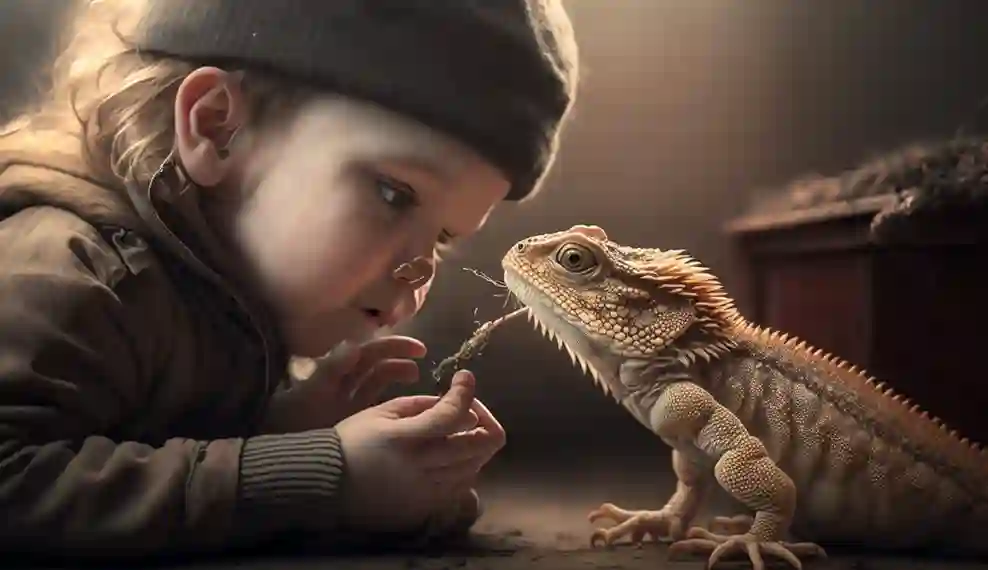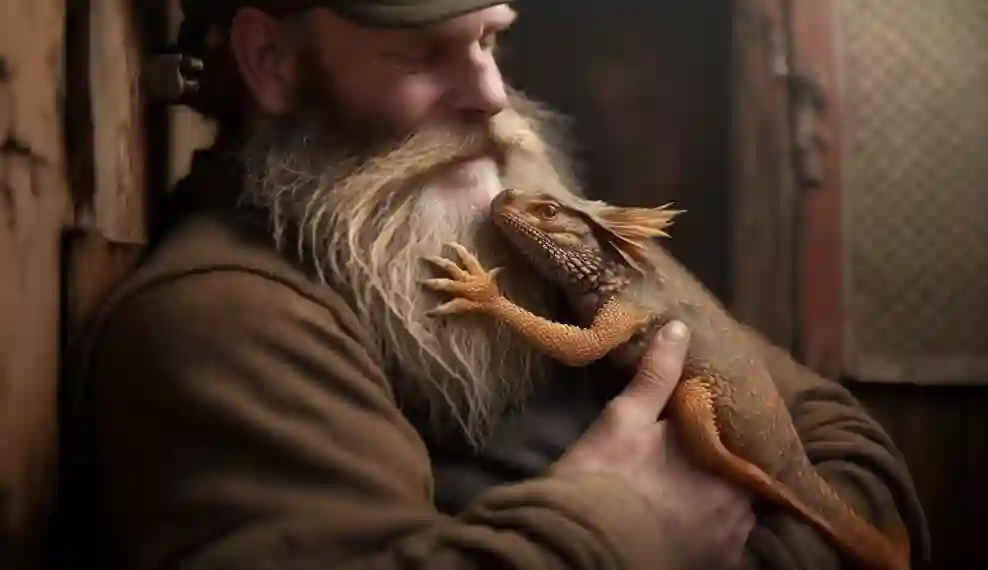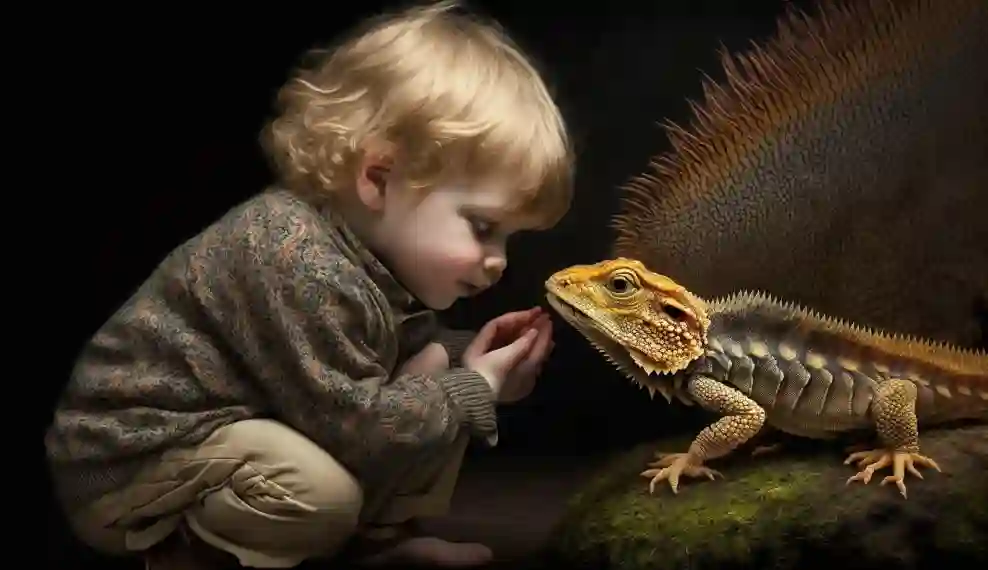Yes, Bearded dragons can make good pets for children. They are easy to care for, gentle, and friendly, and can even be affectionate towards their owners.
However, children should always be supervised when handling them, depending on their age.
Bearded dragons are also hypoallergenic and do not cause allergies.
They are a great option for children who want a reptile that they can actively engage with.
Older children can take an active role in caring for their bearded dragon, from feeding and cleaning to socialization and enrichment.
Do Kids Make Good Bearded Dragon Owners?

Owning a pet can be an exciting and rewarding experience for kids.
It’s like offering up a key to the kingdom of responsibility and nurturing, a fantasyland full of potential adventure that children are all too eager to unlock.
When it comes to finding a unique companion for your child, there are few creatures as special as bearded dragons.
With their friendly personalities and relatively easy care requirements, these lizards make excellent pets for discerning young owners.
Bearded dragons do require some specific conditions in order to thrive, so parents should be prepared to provide adequate housing, substrate, food items, and temperatures before taking on the challenge of owning one with their kids.
But when done right, caring for this reptilian pal can truly be a fulfilling endeavor that teaches patience and accountability while bonding family members together in a wonderful way.
What Are The Pros And Cons Of Owning A Bearded Dragon As A Pet For Children?

Owning a bearded dragon as a pet for children can be both rewarding and challenging.
While it is true that these lizards are quite low-maintenance, there are some important considerations to keep in mind before deciding if they’re the right pet for your child:
- Bearded Dragon Care – Bearded dragons need an enclosure that mimics their natural environment and provides adequate space, lighting, heating, humidity levels, and safety from predators. They also require fresh fruits and vegetables, insects, specially formulated powder food mix, vitamins, minerals, and water.
- Bearded Dragon Diet – A well-balanced diet is essential to maintain the optimum health of a bearded dragon. Fruits and vegetables should make up 80% or more of their diet while protein sources such as insects should comprise less than 20%. It’s best to offer variety daily so all nutritional needs are met.
- Bearded Dragon Lifespan & Health – With proper care, bearded dragons can live between 8-10 years on average; however this could vary depending on individual cases. Regular visits to the vet will help ensure the lizard remains healthy throughout its lifespan.
It’s also worth noting that bearded dragons have unique behaviors like arm waving which may appear threatening but usually indicates submission or friendship when used toward humans.
Children must understand how to treat these animals appropriately with kindness and respect in order for them to remain safe and happy pets.
What Age Is Appropriate For A Child To Own A Bearded Dragon?

It is important to consider the age appropriateness of owning such a pet before making any decisions.
| Age Appropriate | Pros and Cons | Good Pet? |
|---|---|---|
| 5-7 | – | No |
| 8-10 | Potential Bonding/Potential Care Overload | Maybe |
| 11+ | Knowledgeable Partner/Mature Responsibilities | Yes |
At ages five to seven years old, children do not have the maturity or responsibility required to own a beard.
They may not understand the importance of proper diet, habitat setup, and care that all reptiles need in order to thrive.
Due to their tactile nature (their desire to explore), young children may accidentally injure their new pet through incorrect handling techniques.
Therefore, at this age range it is safest not to introduce them as pets until later on when they are more mature and ready for the responsibilities that come with ownership.
For those aged eight to ten years old who demonstrate increased levels of maturity, there is potential bonding with these gentle creatures if parental supervision remains consistent throughout their growth period.
There is also potential for overload here too though; younger children often lack the ability to properly monitor their animal’s health and wellbeing which could lead to significant stressors down the line if left unchecked by responsible adults.
It is therefore best for parents of these age groups who wish to bring home a beardie first assess how much time they’re willing and able to devote towards meeting its needs including feeding times, cleaning schedules, etc., so as to ensure both child and reptile remain safe while having fun together.
Finally, those aged eleven years old or older make great owners since they now comprehend what taking good care of a living creature involves.
These kids tend to take initiative in providing appropriate light sources, temperature gradients, and humidity levels needed within their enclosures; plus most importantly engaging in activities such as talking and interacting with their scaly friends daily – thus developing stronger bonds between them over time.
So long as responsible adults are present during interactions then there should be no issue either way in choosing this type of pet for your growing family member(s).
